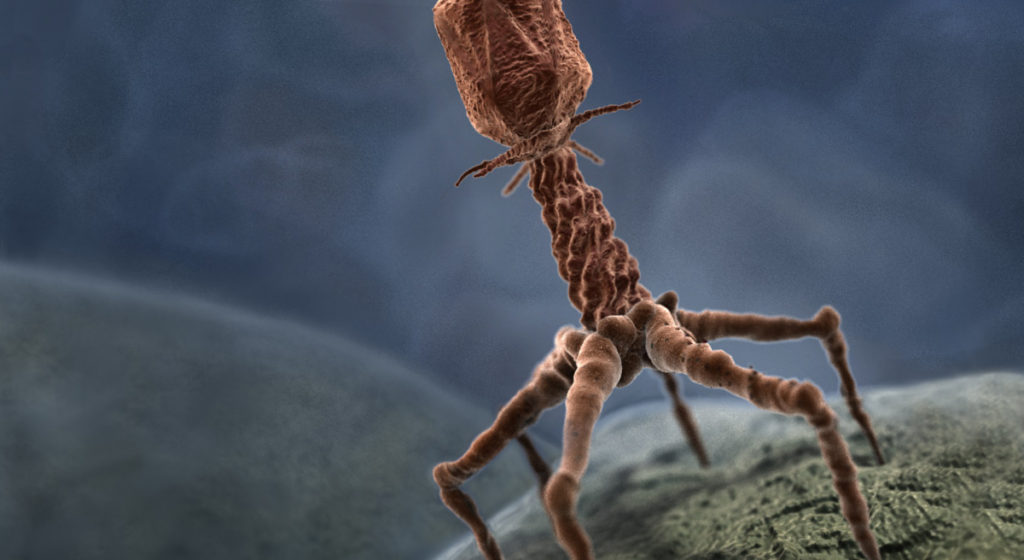Abstract
Bacteriophages operate via pathogen-specific mechanisms of action distinct from conventional, broad-spectrum antibiotics and are emerging as promising alternative antimicrobials. However, phage-mediated killing is often limited by bacterial resistance development. Here, we engineer phages for target-specific effector gene delivery and host-dependent production of colicin-like bacteriocins and cell wall hydrolases. Using urinary tract infection (UTI) as a model, we show how heterologous effector phage therapeutics (HEPTs) suppress resistance and improve uropathogen killing by dual phage- and effector-mediated targeting. Moreover, we designed HEPTs to control polymicrobial uropathogen communities through production of effectors with cross-genus activity. Using phage-based companion diagnostics, we identified potential HEPT responder patients and treated their urine ex vivo. Compared to wildtype phage, a colicin E7-producing HEPT demonstrated superior control of patient E. coli bacteriuria. Arming phages with heterologous effectors paves the way for successful UTI treatment and represents a versatile tool to enhance and adapt phage-based precision antimicrobials.
Introduction
Currently, conventional, small-molecule antibiotics with broad target specificity are the most effective treatments against bacterial infections. However, the global emergence and spread of antimicrobial resistance (AMR)1, as well as adverse effects caused by antibiotic-induced microbiome dysbiosis, highlight the need for novel and more pathogen-specific antimicrobial interventions2,3. Bacteriophages (phages), bacteriocins, synthetic antimicrobial peptides, and target-specific cell wall hydrolases (e.g., phage-derived endolysins) are currently being developed as precision antimicrobials4. Among these, phages are highly promising because of their ubiquity, pathogen specificity, and ability to self-replicate5,6. Although the killing of host bacteria by phages is largely independent of the host drug-resistance profile, treatment with phages often fails to inactivate all bacterial cells within a target population. This can be due to phage tolerance7 or resistance mechanisms that bacteria employ to counteract viral predation, including the production of extracellular matrices, mutation or reduced expression of phage receptors, adaptive CRISPR-Cas immunity, restriction/modification systems, abortive infection systems, and a growing number of other resistance mechanisms described in the literature8,9.
Recent advances in CRISPR-Cas technology and synthetic biology have enabled the rapid modification of phage genomes beyond model phages (such as T4, T7, or lambda) to include therapeutic phage candidates that are typically less well-studied10. As a result, engineering has been applied (i) to adapt phage tropism through directed receptor binding protein modification11,12,13,14, (ii) to construct sequence-specific antimicrobials through phage-mediated, pathogen-specific delivery of programmed CRISPR-Cas modules15,16,17, (iii) to deliver toxic proteins as genetic payloads18, (iv) to develop rapid phage-based (companion) diagnostics through the delivery of reporter genes (reporter phages)10,19,20, and (v) to optimize therapeutic phages for experimental therapy21,22.
In this study, we demonstrate how diverse phages can be engineered to encode bacteriocins and cell wall hydrolases as antimicrobial effector genes, a concept we coin heterologous effector phage therapeutics (HEPTs). Here, effector genes are expressed during infection and their products released upon host cell lysis to function as secondary pathogen-specific antimicrobials, thereby complementing and enhancing phage-mediated killing.
Results and discussion
As a model system, we focused on developing HEPTs as precision antimicrobials against UTI pathogens (concept: Fig. 1a). UTIs are among the most common community-acquired and healthcare-associated microbial infections in all age groups and a major public health concern, resulting in annual healthcare costs exceeding 2.8 billion dollars in the US alone23,24. While the most prevalent causative agent of UTIs is Escherichia coli, the microbial etiology is complex and can involve a wide range of Gram-negative or Gram-positive bacteria and certain fungi25. An analysis of 339 isolates acquired from 227 incidents of UTI during 2020 in Zurich, Switzerland (the Zurich Uropathogen Collection; Supplementary Fig. 1)20 identified 25 different bacterial species, with E. coli (34%), Enterococcus faecalis (18%), and Klebsiella pneumoniae (14%) as the most prevalent uropathogens, which is consistent with previous etiological studies on UTIs25…







